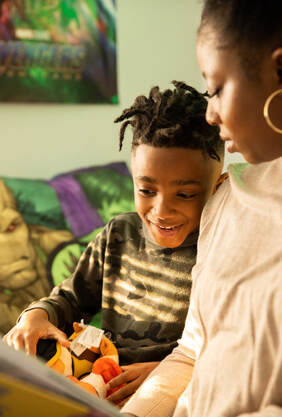 Photo by Suad Kamardeen on Unsplash Photo by Suad Kamardeen on Unsplash Early childhood is a critical time period in development when children begin to learn about their environment, develop a sense of self and explore how to express their emotions. While a huge part of development occurs prior to entering school, children continue to grow and develop as they encounter new life experiences. Positive relationships with parents help children develop trust, empathy, compassion and a sense of right and wrong. It is important that parents foster social and emotional learning throughout early experiences. According to experts, when kids learn to work well with others, regulate their emotions and engage in problem-solving, they are better prepared to deal with life’s challenges and be more successful in school. What Is Social and Emotional Learning? Social and emotional learning (SEL) involves creating positive relationships and emotional connections as part of learning to help children develop the skills they need to be successful in life. SEL has often been emphasized in schools, given the amount of time spent in the classroom and the opportunities available to practice these important skills. SEL skills include having the ability to:
Strategies for Supporting SEL in Kids
Remember that life is unpredictable, and many children are learning by watching the actions of adults in their lives. Early childhood is also a critical opportunity to teach social and emotional skills. As kids grow and develop, it is necessary to prepare them to deal with uncertainty now to help them thrive in adulthood. Visit the Therapy for Black Kids book recommendations for books on fostering SEL: http://bit.ly/T4BKbooks A version of this was originally written by Dr. Erlanger Turner for the US News and World Report For Parents Blog  Black parents and grandparents are especially vulnerable to the psychological stress associated with daily events that affect their lives [1]. According to some research [1], “assuming these responsibilities in a household where only one parent is present and being the head of the household can be stressful”. Given the potential stress, it is important that Black parents take care of themselves. In this tool kit from the American Psychological Association, tips are offered on racial stress and self-care. What is Parenting Stress? Parenting stress has been defined as a negative psychological response due to being a parent or caring for a child as a result of everyday events such as feeding, bathing, or managing behavior problems [2]. Parenting stress may be experienced by all parents, but research has shown that parenting stress can be more severe for parents of children who display difficult and challenging behaviors like hyperactivity, temper tantrums, non-compliance, or conduct problems. Coping with Parenting Stress In a previous blog for Psychology Today, 4 tips for managing parenting stress were discussed: 1. Seek professional help If you find yourself feeling overwhelmed, seek professional help from a psychologist or licensed mental health professional. Psychologists can be helpful to provide strategies to help you cope with life’s challenges. Additionally, they may be able to provide you with resources to help improve your child’s functioning and decrease problem behaviors that may increase parenting stress. 2. Increase quality time with family Find ways to do enjoyable activities with you and your family. By spending more quality time together, it improves the parent-child relationship. Furthermore, it is not helpful to overly focus on everything that is not going well in your child’s life. Even though it may be difficult to incorporate extracurricular activities into the family’s schedule, consider being creative by having a family game night or engage in other activities that your child enjoys. 3. Make time for yourself Many parents of children with special needs or mental health conditions have a hard time taking a break. This may be partly due to the time required to care for your child. However, many also feel they need permission to have some alone time. It is okay to take a break for yourself. It’s actually healthy and more beneficial for you and your child to have some time apart. 4. Use your support systems It is extremely important to make use of your support systems. Having social support is very helpful to decreasing parenting stress. For example, if extended family is available ask them to provide child care for a few hours during the week so you can engage in self-care. Support systems may also be helpful to provide an avenue for you to talk with others about how they cope with being a parent. It is always good to hear how others have addressed a problem or find that you are not alone. Written by Erlanger “Earl” Turner, Ph.D. Sources: [1] Taylor, J. Y., Washington, O. G., Artinian, N. T., & Lichtenberg, P. (2007). Parental stress among African American parents and grandparents. Issues in Mental Health Nursing, 28(4), 373-387. [2] Barroso, N. E., Mendez, L., Graziano, P. A., & Bagner, D. M. (2018). Parenting stress through the lens of different clinical groups: A systematic review & meta-analysis. Journal of Abnormal Child Psychology, 46(3), 449-461. |
This blog is maintained by Therapy for Black Kids. Archives
June 2023
Categories
All
|
 RSS Feed
RSS Feed